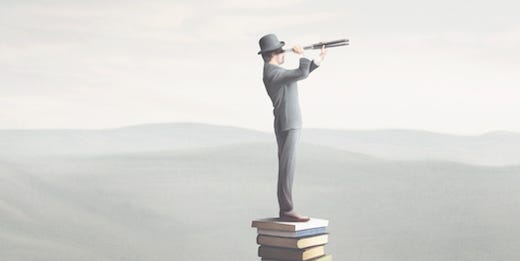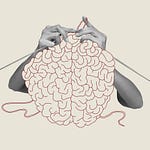Here is the fourth chapter of Taking Heart and Making Sense.
If you’re new here, you might like to read an intro article about the book. I also recommend listening to the book’s Introduction first. Recordings of the first three chapters are available, but most of this chapter will make sense on its own.
This chapter provides what I hope is an engaging and accessible look at the history of some of our most fundamental beliefs about the world. It describes the basic assumption of many people living secular lives in Western culture, not least many scientists: that we have objective knowledge of a world that is basically made of physical matter. Yet, as explained by the philosophical biologist Hans Jonas, that position (which many of us take for granted) makes life itself an anomaly in the universe. How odd that one of the most intuitively real observations we might make of the world, that it is brimming with manifold living beings of myriad kinds, becomes so difficult to explain! That our own aliveness becomes incomprehensible! And that all this life must somehow be explained in terms of essentially dead matter!
These beliefs are not given but rather the result of long historical developments in philosophy and culture, including in religion as well as science. To understand our current predicament, and why it is so resistant to change, we need to understand the dynamics of dualism that preceded our contemporary materialism.
One of the reasons that I tried, in the previous three chapters, to lead readers into the idea that our deeper philosophical assumptions need to change (rather than just simply state that they need to change) is that when I first started postgraduate study barely anyone outside of specialised philosophical fields seemed to be interested in metaphysics (or these basic assumptions). That doesn’t seem to be the case anymore. The problem of consciousness, in particular, tends to open us up to these deeper considerations and an explosion of interest in consciousness has occurred over the past twenty years. But one thing I do notice, and which I point out in some examples in this chapter, is that when looking for an alternative to materialism, people often choose the opposite: idealism, or the idea that the fundamental reality of the world is mind or consciousness. I suspect, as Jonas does, that this keeps us in the dualism, when what we need is something different, something that goes beyond the original dualism, even if we still accept a kind of natural duality in our experience.
Tracing the development of science and materialism can also alert us to how we have come to view ourselves using only these lenses. Rather than earthly beings with a transcendent soul (one previous expression of dualism) we have become psychological beings with inner lives that may also be the object of science, or objective observation and intervention. Regardless of the successes of psychology or science, it is worth considering the ideology of science and how it pervades not only our treatment of nature, but our treatment of ourselves and each other. Philip Rieff’s book The Triumph of the Therapeutic really helped me to understand this and how vital it is that we develop a worldview that includes a strong sense of meaning and value, a worldview that can help to ethically guide us.
While modern life is indeed physically very comfortable for many people, we are plagued by dissatisfaction, disconnection, ill health and mental illness. If I had to choose one overriding reason for this it would be that built-in belief, now an engrained sense, that is so hard to shake off in secular life: the belief that nothing really matters. That surely is a tragedy that deserves our focused attention and requires compassion and repair.
Quick overview:
That feeling is so difficult to understand, as discussed through Part One of the book, prompts a need to consider our underlying beliefs about the world. In this chapter, I explain the development of the fundamental world views of materialism and idealism with reference to the work of philosophical biologist Hans Jonas. The dualism of these two positions continues to pervade Western culture, as witnessed in the tendency towards the opposite of idealism as the limits to materialism become more obvious.
The ideology of science is then discussed with reference to the work of Philip Rieff. The attitude of science has influenced if not generated the modern, psychological self, which makes it difficult to find meaning other than the simple goal of being pleased or feeling good. To find real meaning and value in the world and in our own lives requires a shift in our basic beliefs. We need not give up science or psychology but should become more aware of and address their limits.














Share this post